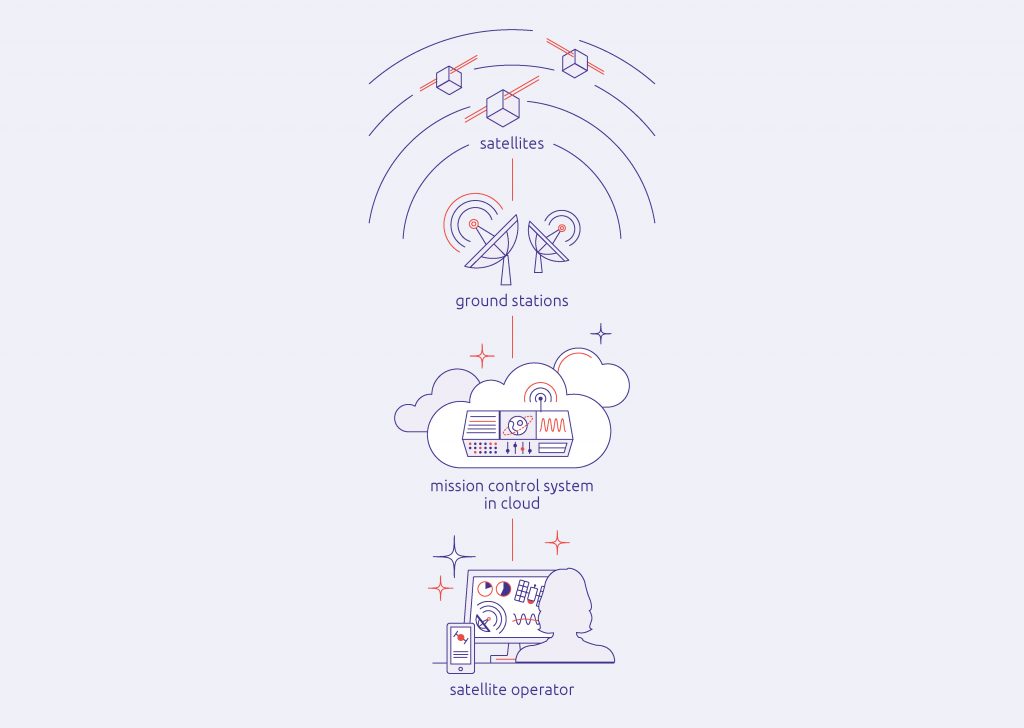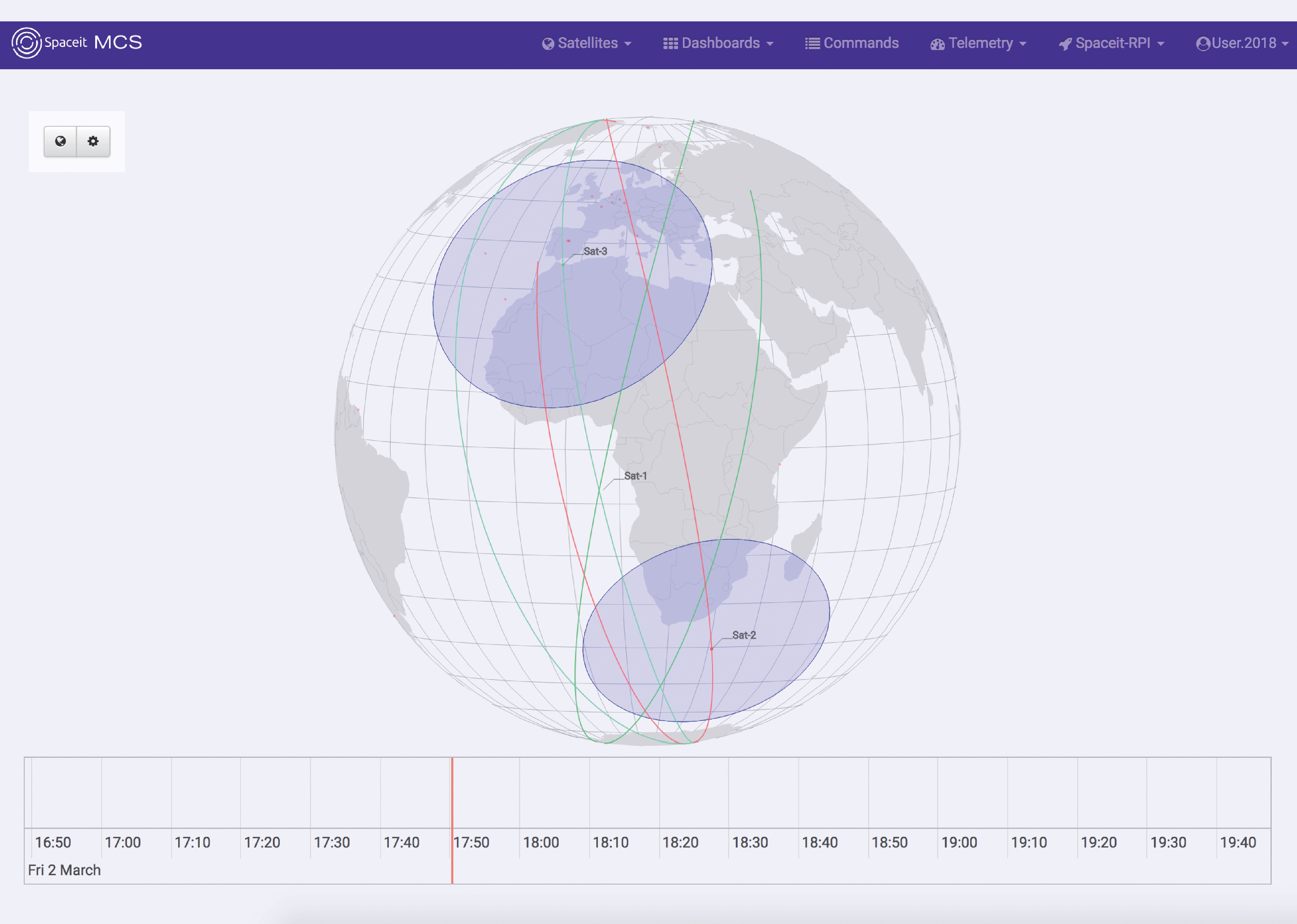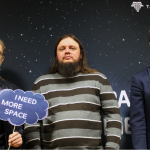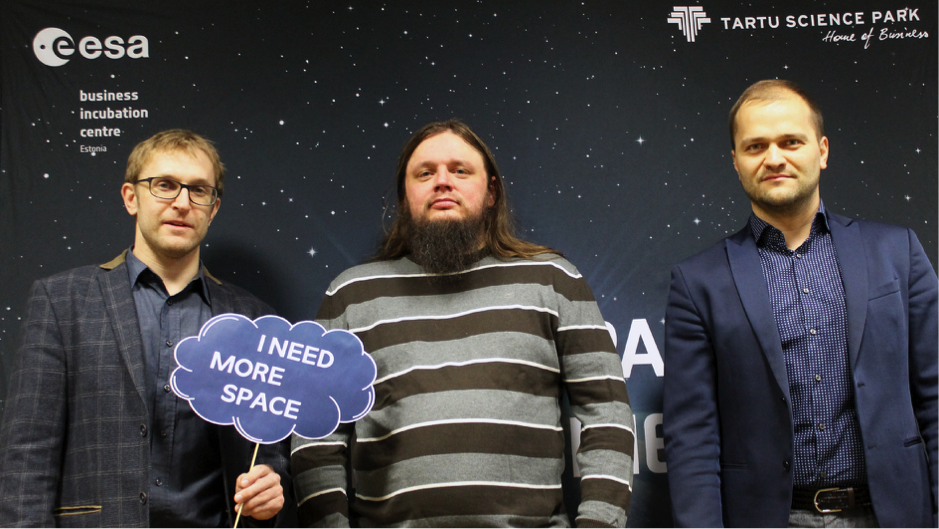Spaceit is an Estonian space tech company seeking to revolutionise space missions. It provides cloud-based satellite operations, offering mission control as a service. This includes pre-integrated access to a global network of ground stations, satellite control and mission consultation service. The start-up is part of the European Space Agency’s Business Incubation Centre in Estonia and has also received funding from the European Union’s Horizon 2020 research and innovation programme.
We spoke with CEO Silver Lodi and CTO Lauri Kimmel to discuss their work and how their company fits into Estonia’s digital hub and Europe’s growing space start-up scene.
Spaceoneers: How did your start-up get going?
Silver: Lauri was involved with the ESTCube-1, the successful Estonian cubesat mission launched in 2013. After that, he went to work in Australia. Upon returning, he approached me with an idea to start developing mission control for satellites.
Lauri: I was responsible for mission control development for ESTCube-1, a student project. I was helping to lead the MCS team.
Silver: Initially Spaceit was founded by three good friends in 2015. Lauri and I knew each other from the elementary school. We met our third partner Mihkel in high school. So we may say Spaceit’s roots go back to mid and late 90’s.
Spaceoneers: So this was a spinoff from your cubesat project?
Lauri: Yes
Spaceoneers: How did you come up with the name Spaceit?
Silver: There were some names we generated in our team and others offered by friends. A friend of mine suggested this name. We were very eager to start our company and to have a catchy name. After a short testing period, we chose Spaceit. It helped that the spaceit.eu domain was also available.
Spaceoneers: Can you explain your mission control service?
Lauri: Each and every satellite mission needs a mission control system in order to operate satellites. Nowadays, many missions are developing these systems in-house from the ground up. In other words, they are creating it each time from scratch. We are offering mission control as a service. Users and missions can sign up to use our system with a subscription fee.

Spaceoneers: What makes it different to other platforms?
Lauri: There are other projects and tools available for mission control. None of them are offered as a service. Mostly they are focused on small installations. This approach requires lots of involvement from the mission side. Several in-house developers are required to adjust the system initially for the mission needs and later to keep it up and running.
Silver: Our solution includes the product – a cloud-based mission control system – itself, the wide radio coverage (we are outsourcing radio signals from different ground service providers worldwide) and also satellite control and the support/consultation service. All in all, we consider ourselves a one-stop solution for satellite ground communications. We are making the ground control part of a space mission easier and more efficient.
Spaceoneers: So you are effectively reducing the cost for people developing their own satellite?
Silver: Definitely the cost side is one part, but we consider the reliability and security event more important. We are growing and improving our system constantly. This yields on a better service for our customers. In addition, the features of our mission control system, its user experience, latest technology and the overall radio communication coverage are integral components of our service.
Lauri: We should also mention scalability. An average mission control typically supports a limited number of satellites. We are actually providing simultaneous control of many satellites and missions.

Spaceoneers: What makes Estonia special in terms of its digital start-ups?
Silver: Entrepreneurship is rather common in Estonia, especially amongst younger people. In Estonia, it was rather convenient to establish a company. We did it all online. I think it took us 5 to 10 minutes.
Lauri: Yes, maximum twenty minutes. The most difficult part was choosing the name!
Silver: We can do everything online – choose the form of the company, the share capital, and enclose articles of our association and other important documents that are needed. We also created a bank account online. Overall it was a rather simple process.
Spaceoneers: How have recent digital companies (like TransferWise or Skype) been so successful – is it mainly the regulation?
Silver: I think the idea and, of course, the team are the most crucial parts. Furthermore, you must have a good and potentially successful business model and the demand. All the legislation then supports the business.
Spaceoneers: Do you have a strong digital community in Estonia?
Lauri: There might be a shortage of IT people in Estonia already, companies are competing and everyone has to go the extra mile. The community is very active, for example there are regular meet-ups and other tech events. Although it may seem small, considering the talent it is quite impressive.
Silver: In that sense, the community is active and engages with IT-related jobs.
Lauri: Estonia has also been a member of the European Space Agency (ESA) for a few years now but we don’t have so many space companies yet, perhaps ten or so. Nevertheless, sector it’s getting stronger and is still growing.
Silver: The ESA Business Incubator in Estonia was opened in the end of 2017. There is more exposure, promotion and discussion about the space industry now.
Spaceoneers: So you’re one of three companies who have joined the ESA BIC in Estonia – how will this benefit you?
Silver: First of all, the know-how and networking from being there and being involved with ESA. Being part of the incubator shows validation about your product. Also, there is a financial benefit that helps us to develop our project further and to have a good ground to employ new employees in the future.
Lauri: I agree, I think the networking is quite important. For example, there are collaboration opportunities, which are important for us.
Spaceoneers: You’re using the strength of the digital economy in Estonia but also with ESA for space. How do you get people interested in your service?
Silver: For customers, we want to show the benefits of our solution and the product itself – the modern user experience and its main features. Regarding potential investors, they want to see the return on investment, growth. Last year, there were 329 new cubesats launched (which is the largest annual number so far). There are many active and public discussions on the sector, the developments and the companies involved in the sector, going on. Which is all good. It shows a great promise and potential to invest into space.
Spaceoneers: How do you think the progression of more cubesats will impact your value proposition moving forward?
Silver: It definitely helps us. Investors always want to evaluate the market and the number of market participants. If the number of satellite-launching companies is growing, this helps to contribute to future turnover. Also if the sector develops as it has done so far, it is easier for us to attract potential employees like software developers, as well.
Spaceoneers: This certainly sounds like a promising area. What advise would you give to others who want to start their own space start-up?
Silver: One thing that pops to my mind is to have enough patience, especially regarding the developing market. All things don’t come so easy or quickly as one might expect.
Lauri: Considering a broad space perspective, then it can be slow compared to other sectors. But if you look at “new space”, then developments are happening much quicker. It’s good to be aware of that. If you wish to work with the big players, be patient. If you want to make some quicker progress, then focus on “new space” and keep on top of current trends. It helps to see bigger picture and understand movements in the sector.
Spaceoneers: Do you rather have an involvement in the quicker “new space” industry?
Lauri: If you are a small start-up with limited resources, then “new space” is probably easier to step into than the traditional space industry. If you want to start working with bigger companies, then some patience, time and people (more resources) are needed.
Silver: Maybe I’m already repeating myself, but one of the most integral factors in starting a space company is having a good team, just like in any other industry. Mentors can also guide you to a good path.
Lauri: It’s also important to use all the available resources well. Space events have helped us meet high-ranking people. That’s where you can get the crucial connections. For example, different summits have helped us to connect to many important people.
Silver: All in all, be active!

